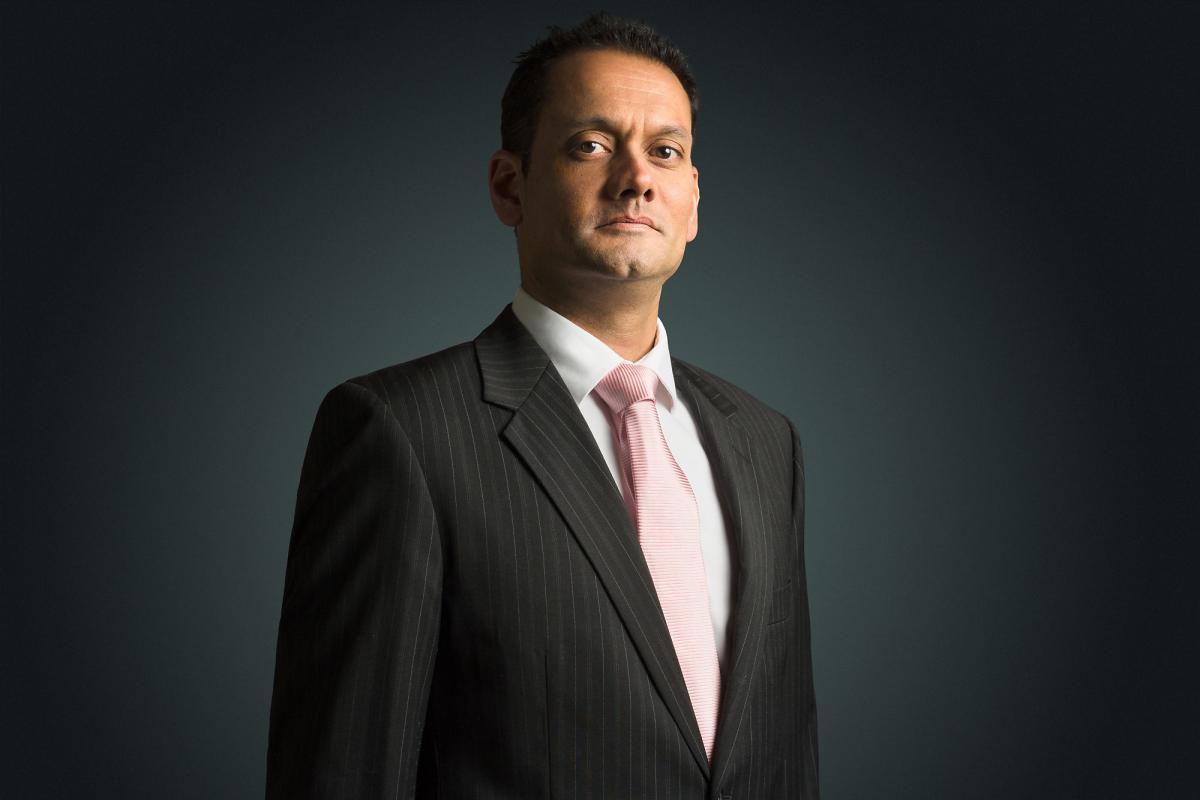
In a joint Q&A with NLJ, Ian Skelt and Dijen Basu QC (pictured) of Serjeants’ Inn’s police practice team compare notes on heroes, challenges & changes within the profession
What were your routes into the profession?
Ian: The rather conventional approach of a law degree at Newcastle University and then straight through the ICSL and into pupillage.
Dijen: I took the traditional and well-trodden route of spending five years at medical school, followed by a year practising as a doctor. One of my many patients was a well-known QC who described what his work involved. I caught the bug, he was cured of his, and the rest is history.
What have been your biggest career challenges so far?
Ian: The early years of my practice focused on heavy criminal work and I built up a very good practice. After about nine years I decided to concentrate purely on civil. It was nerve-wracking to leave everything that I had worked so hard to achieve. However, it was the right thing to do and I have never regretted it. It is of course a great shame that the drain of people from the Criminal Bar continues.
Dijen: Silk. As time wore on, I knew more and more people who were taking silk, I had more and more opponents who sat in the row in front of mine in court, and I had more and more cases which went to silks rather than to me. I decided to apply. It involved completing a 65-page application form, a two-year process of collecting really good cases from which I could ask 12 judges, six opposing counsel and six solicitors to act as assessors. It’s a stressful slog of which non-legal family and friends bear the brunt. It was a lot harder than any actual work I have ever done. But, after all that, I got the Letters Patent (which my dad calls ‘your certificate’).
Which person within the legal profession inspires you most?
Ian: My first head of chambers, Franz Muller QC. He was a proper heavyweight criminal and common law silk and I had the great benefit of working with him a lot when I started at the Bar. He routinely gained great results in apparently hopeless cases through sheer hard work and an astounding level of thoroughness. He also showed me how you can fight very hard in court, but never take that outside the courtroom. I have done my best to emulate this approach throughout my career.
Dijen: My first pupil master, David Bean, who later became a QC, Chairman of the Bar, a judge and is now a Lord Justice of Appeal and Chairman of the Law Commission—without ever being showy about it. He did the great honour of inviting me to be one of the people to speak from the Bar at his swearing in as a High Court Judge on 20 July 2004. That would have been my ‘biggest career challenge so far’ had it not been for the slightly early arrival in this world of my daughter, Alyana, that very morning. It is the only court appearance I have ever missed.
If you weren’t lawyers, what would you choose as an alternate career?
Ian: I had intended to be a doctor, but sixth form summer holidays spent working as a theatre porter conclusively put me off the idea. The junior doctors were the most exhausted-looking humans I had ever seen. I doubt whether much has improved much since then.
I suspect I would always have ended up at the Bar. I love it and have never regretted it as a choice of career.
Dijen: Being a lawyer IS my alternate career!
Who is your favourite fictional lawyer?
Ian: I’ll eschew this opportunity to identify someone worthy and will give the honest answer instead—Saul Goodman from Breaking Bad. Doing my best to put a positive spin on his activities, he has an admirable ability to identify lateral solutions to problems, is commercially minded, and respects the need to represent all sections of the community.
Dijen: Victor Sifuentes from LA Law. I even used to try to look like him when I was younger. I seek to emulate his cross examination technique, my style being somewhat cramped by (1) having a slight Midlands accent, (2) the requirement to wear a horsehair wig and (3) not being allowed to walk up to the witness box and actually shout at the witness.
What changes would you make to the profession?
Ian: The costs of childcare should be tax-deductible. That, on its own, would go a long way to assist parents (and particularly women) to return to the bar after having children. Also, I am firmly of the view that it is in the general public interest that there is a properly funded scheme providing for access to justice for those who cannot afford to pay for it. None of the attempts to replace civil legal aid have worked.
Dijen: I would halt the march toward a fused legal profession. Solicitors and barristers are good at different things. Their skills complement one another.
How do you relax?
Ian: Fulfilling all applicable clichés, I go cycling.
Dijen: When I can afford it, I exercise the privileges of my helicopter licence. But the actual flying, excited/terrified babbling passengers and paying the bill, tend not to be very relaxing…









